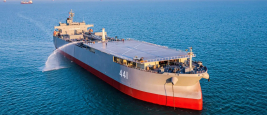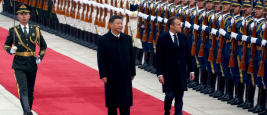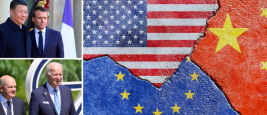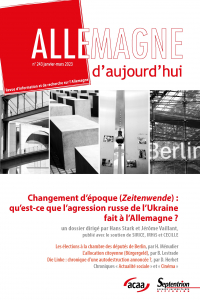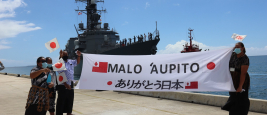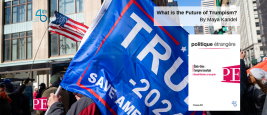In January 2023, the Iranian Navy staged a show of force near the Australian Exclusive Economic Zone (EEZ) amid growing tensions between Tehran and Canberra.

Publications
With over 150 publications issued each year
under an open access policy in French, English, German and Russian,
Ifri enriches the international debate with a constant concern for
objectivity, intellectual rigor, transversality, openness, and support to public and private decision-making.
President Emmanuel Macron will visit China from April 4 to 8 for the first time since 2019 and five months after his meeting with Chinese President Xi Jinping, on the sidelines of the G20 summit in Bali.
As French President Emmanuel Macron (accompanied by Ursula von der Leyen) is on a state visit to China, some twenty Ifri researchers decipher the stakes of the U.S./China/Europe strategic triangle.
The Red Team Defence demonstrates the Ministry of the Armed Forces' desire to appropriate new foresight tools. Thus, brain games or serious games aim to bypass the weight of the military hierarchy, the standardisation of thoughts and cognitive biases in order to avoid strategic unthinking.
The Social Democratic Party of Germany (SPD) looks back with pride on the history of its Ostpolitik, which it sees as having paved the way for German reunification. With the firm will to continue this Ostpolitik after the end of the Cold War, SPD politicians of the last 20 years have...
Japan has recently stepped up its engagement with the Pacific Island Countries (PICs), building on its historical ties and strategic interests in the region.
The chaotic retreat of the United States from Afghanistan in August 2021 might lead to an expectation of a lasting loss of influence in central Asia.
This issue is available in French only.
...Donald Trump's presidency allowed the most radical wing of the Republicans to seize hold of the party.
More frequent climate disasters, rising sea levels, the economic fallout of Covid-19 lockdowns, border closures, supply chain constraints, and the global impact of the war in Ukraine have aggravated the challenge of maintaining sustainable and resilient food systems for Pacific Island...



